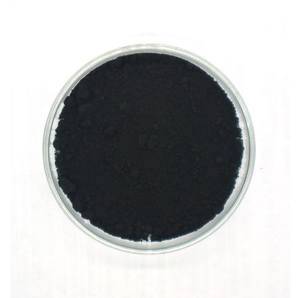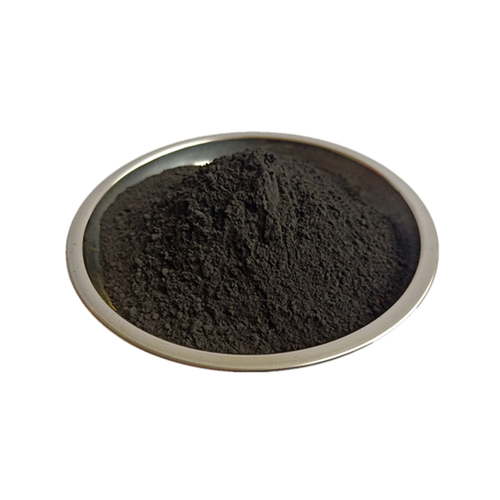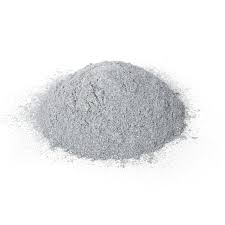Overview of Silicon carbide flaring taper cup grinding wheels for cutting and polishing
Silicon Carbide (SiC), also known as carborundum, is a synthetic ceramic compound made up of silicon and carbon atoms. Known for its exceptional hardness, thermal conductivity, and resistance to chemical reactions and wear, SiC is a versatile material widely used in high-performance applications that demand superior physical and electronic properties. Its unique crystal structure, which can exist in several polytypes, contributes to its multifaceted utility across various industries.
Features of Silicon carbide flaring taper cup grinding wheels for cutting and polishing
-
Exceptional Hardness: Silicon carbide ranks just below diamond and boron carbide in hardness, making it an ideal abrasive material.
-
High Thermal Conductivity: It is an excellent heat conductor, capable of dissipating heat rapidly, which is crucial for high-power electronic and semiconductor devices.
-
Chemical Stability: Resistant to most acids, alkalis, and salt solutions, SiC maintains its properties even under harsh chemical environments.
-
Wide Bandgap Semiconducting Material: As a wide bandgap semiconductor, it operates at higher temperatures and frequencies than conventional semiconductors like silicon.
-
Mechanical Strength and Wear Resistance: Offers high mechanical strength and excellent wear resistance, suitable for mechanical seals, bearings, and pump components.
-
Thermal Shock Resistance: Can withstand rapid temperature changes without cracking or degrading, important for applications involving cyclic heating and cooling.

(Silicon carbide flaring taper cup grinding wheels for cutting and polishing)
Parameters of Silicon carbide flaring taper cup grinding wheels for cutting and polishing
1. Design: The type of disk design is an important factor in determining the performance of the tool. A flat surface with sharp angles at both ends makes it easier to grind and shape and polished. Additionally, the number of edge teeth on the tool will affect the grinding force needed to complete the task.
2. Grind Parameters: The grind parameters determine how hard the tool works, including the speed of rotation and the direction of the cycle. Continuous feed speed, offset angle, and speed_INCREMENT can all affect the performance of the tool. High-speed feed speed increases the amount of material that gets into the tool, while low-speed feed speed reduces the amount of material being. Speed_INCREMENT can increase the frequency of turning the tool, but may also increase the amount of energy required.
3. polish Parameters: The polish parameters determine how much contact there is between the tool and the surface being polished. Good cleaning, replacement at regular intervals, and use of soft wax can help improve the performance of the tool.
4. Tool Shape: The shape of the tool affects its ability to efficiently cut and polish. Having a flat surface with sharp edges helps to reduce the amount of material getting into the tool and improve the smoothness of the tool’s performance.
5. System Parameters: The system parameters include the quality of the abrasive medium used to grind the wheel, the speed of the lathe, and any other external factors that may impact the performance of the tool. A high-quality abrasive medium is essential for achieving consistent performance, while optimizing the speed and angle of the tool can help improve the accuracy of the grinding process.
Overall, the choice of size, material, and design of the fit depends on various factors such as the application and the desired level of precision and efficiency.

(Silicon carbide flaring taper cup grinding wheels for cutting and polishing)
Applications of Silicon carbide flaring taper cup grinding wheels for cutting and polishing
-
Semiconductor Devices: Used in high-voltage, high-frequency, and high-temperature power electronics, such as MOSFETs, Schottky diodes, and power modules.
-
Abrasive Materials: As an abrasive grain in grinding wheels, sandpapers, and cutting tools due to its hardness and wear resistance.
-
Refractories and Furnace Linings: In high-temperature furnaces and kilns because of its outstanding thermal stability and resistance to corrosion.
-
Ceramic Armor: In lightweight armor systems due to its combination of hardness, toughness, and low density.
-
Chemical Process Equipment: For pumps, valves, and seals in corrosive chemical environments where metals would corrode.
-
Wire Sawing: As the abrasive medium in wire saws for slicing silicon wafers in the semiconductor industry and gemstones.
Company Profile
MyCarbides is a trusted global chemical material supplier & manufacturer with over 12-year-experience in providing super high-quality carbides and relative products.
The company has a professional technical department and Quality Supervision Department, a well-equipped laboratory, and equipped with advanced testing equipment and after-sales customer service center.
If you are looking for high-quality carbide materials and relative products, please feel free to contact us or click on the needed products to send an inquiry.
Payment Methods
L/C, T/T, Western Union, Paypal, Credit Card etc.
Shipment
It could be shipped by sea, by air, or by reveal ASAP as soon as repayment receipt.
FAQs of Silicon carbide flaring taper cup grinding wheels for cutting and polishing
Q: How is Silicon carbide flaring taper cup grinding wheels for cutting and polishing produced?
A: Silicon carbide flaring taper cup grinding wheels for cutting and polishing is primarily synthesized through the Acheson process, which involves heating a mixture of silica sand and carbon (usually in the form of coke) in an electric furnace at high temperatures.
Q: Is Silicon carbide flaring taper cup grinding wheels for cutting and polishing conductive?
A: Yes, Silicon carbide flaring taper cup grinding wheels for cutting and polishing is a semiconductor material with unique electronic properties, including high breakdown voltage and thermal conductivity, making it suitable for power electronics.
Q: Can Silicon carbide flaring taper cup grinding wheels for cutting and polishing be used in extreme environments?
A: Absolutely, SiC’s high temperature stability, resistance to radiation damage, and ability to withstand thermal shocks make it ideal for applications in space, nuclear reactors, and deep-well drilling.
Q: What gives Silicon carbide flaring taper cup grinding wheels for cutting and polishing its unique properties?
A: The covalent bond structure of Silicon carbide flaring taper cup grinding wheels for cutting and polishing, along with its tight crystal lattice, contributes to its hardness, high melting point, and resistance to wear and corrosion.
Q: Is Silicon carbide flaring taper cup grinding wheels for cutting and polishing biocompatible?
A: SSilicon carbide flaring taper cup grinding wheels for cutting and polishing has been investigated for biomedical applications due to its biocompatibility, inertness, and durability, with potential uses in orthopedic implants and surgical instruments.

(Silicon carbide flaring taper cup grinding wheels for cutting and polishing)




